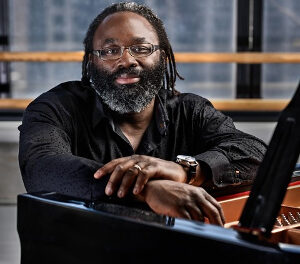>The days of Christof Perick’s tenure as Charlotte Symphony music director had dwindled down to less than 30 as he stepped onto the podium at Belk Theater for his penultimate concert. His previous program three weeks earlier, including works by his two signature composers, Mozart and Strauss, could be viewed as a summation; and ahead lay Beethoven’s Ninth, an obligatory summit. Meanwhile, the pieces chosen for the “Russian Spectacular” program demonstrated that Perick had no intention of going gently – or comfortably – toward his final goodnight.
Although soprano Heidi Meier had been Perick’s featured guest on two prior occasions, the Russian work she brought with her this time, Reinhold Glière’s Concerto for Coloratura Soprano, had never been performed by this symphony. There are also safer concert openers than Mikhail Glinka’s Overture to Ruslan and Ludmilla, which dispenses with warm-up formalities and reaches high gear quicker than a Porsche. The culminating piece of the evening, Tchaikovsky’s “Pathétique,” is the antithesis of claptrap with its doleful fadeout after an irresistible molto vivace march. The Symphony hadn’t played it since 2001, and Perick had never led it here before.
Perick could point with pride to the violins in the Glinka, gracefully negotiating the galloping tempo and playing the long-breathed melody with panache. The cellos were another sign of the forward strides the orchestra has made under their departing maestro’s guidance, richly mellow in response. A blunt smudginess that we’ve never heard from the Charlotte Symphony reared up in the early expostulations of the brass, very right for this repertoire, but the timidity of the winds was a little deflating after all the exhilaration that had come before. Fortunately, there was another gallop for the violins as the overture climaxed with another flourish of the brass, this last one proclaimed with reassuring crispness.
Abundant redemption came for individuals in the wind section afterwards. Principal clarinetist Eugene Kavadlo had a luscious dialogue with Meier in the most ethereal passages of the concerto – and a fine reprise of the rhapsodic big tune in the opening movement of the “Pathétique.” Allan Rosenfeld was certainly affecting moments before in Symphony No. 6 on bass clarinet just before the bracing accelerando, but it was bassoonist Joshua Hood who made the most lasting impression among the soloists in Tchaikovsky’s dolorous outer movements. Cellos initiated the waltzing second movement with all the graciousness you could ask for and the third movement built its marching momentum so sweepingly that I was resigned to the audience giving it an ovation before it broke out. Unlike the 2001 performance, the lamenting finale wasn’t anticlimactic and the audience ovation wasn’t tentative or quizzical. Hood’s heartbreaking bassoon was responsible in large measure for the difference. But the standing ovation was also earned by the intense violin ensemble, cleanly chopped by sharp interjections from the brass. Principal French hornist Frank Portone and his section mates were eloquent in resetting the funereal mood. Trombones and bassoons matched that eloquence in the vanishing cortege.
A couple of standing Os were also lavished on the first half of the program. The vocalese of the opening allegro in the Glière concerto had some of the deliciousness we associate with the cantilena from the Bachianas brasileiras No. 5, and Meier, who seems to grow more assured with each visit, soared effortlessly in its silvery stratosphere. Any lingering doubts that Glière would truly demand coloratura exploits from his soloist were dispelled in the ensuing allegro, which offered Meier the opportunity to range higher – and more virtuosic – in a display that called to mind the show-stopping “Doll Song” in Tales of Hoffman. Meier and Perick were obviously prepared for the wild éclat their collaboration would spark, armed with a truly coloratura encore, “Glitter and Be Gay” from Leonard Bernstein’s Candide. Not always intelligible, but boffo nonetheless.
At intermission, video screens in the Performing Arts Center were offering hints of coming attractions for the 2010-11 season, the first under newly appointed maestro Christopher Warren-Green’s baton. Amid the roll call of composers and guest artists, the return of Christof Perick in a guest slot was accorded special mention. Immediately after Meier’s performance, it was hard to resist the notion that the soprano might be along for the ride with her German countryman – or to avoid the notion that her inclusion would make that special event more special.











